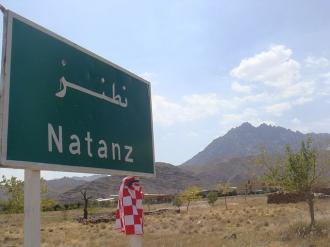Last week, I neglected to mention the yahrtzeit of R’ Ephraim Eisenberg which was on Sivan 16. The delay is somewhat apropos as our son, Efrayim, just turned 13 this week. We will be celebrating his Bar Mitzvah this Monday here in Baltimore. (I hope to include the text of some of the speeches next week.) The shtikle is dedicated le’iluy nishmas Ephraim Zalman ben Chayim HaLevi and lichvod the Bar Mitzvah, Efrayim Zalman.

HaRqav Ephraim Zalman ben Chayim HaLevi, ZT'L
Of course, the most significant of events that takes place in this week's parsha is the sin of the spies. Ten of the spies delivered bad reports about Eretz Yisrael while only Yehoshua and Calev delivered positive reports. My Zadie, R' Yaakov, z"l, points out, though, that if you look at the positive components of each of the reports, there doesn't seem to be much difference. In pasuk 14:8 Caleiv describes Eretz Yisrael as "eretz zavas chalav udvash" But the ten spies also describe it as such in 13:27 "vegam eretz zavas chalav udvash hi". What is the difference? Also, why did the ten spies use the word "vegam".
My Zadie answers that we observe in next week's parsha (16:13) that part of Dasan and Aviram's complaint to Moshe was "hame'at ki he'elisanu mei'eretz zavas chalav udvash", this referring to Egypt. We see clearly that they considered Egypt to also be an "eretz zavas chalav udvash". Therefore, the spies are rebuked for saying "vegam..." because what they meant was that Eretz Yisrael is also nice, like Egypt, but no better. Caleiv, however, worded it differently, saying "eretz zavas chalav udvash hi." IT is an eretz zavas chalav udvash like no other.
To add to this thought, we see a similar concept in the gemara Sanhedrin 104a. The gemara describes how Sancheirev was rewarded for praising Eretz Yisrael and Bnei Yisrael were rebuked for speaking badly about it. The gemara goes on to explain the specifics, that when Bnei Yisrael were exiled and they came to their new lands they said, "This is just like we had in Eretz Yisrael". The lesson learned from all of this is a great one. For we know that the principal lesson in this week's parsha is the gravity of the sin of talking badly about Eretz Yisrael. It is obvious that this includes direct criticism of Eretz Yisrael, but now we see that even putting other lands on the level of Eretz Yisrael is a grave sin which falls under the same category.















